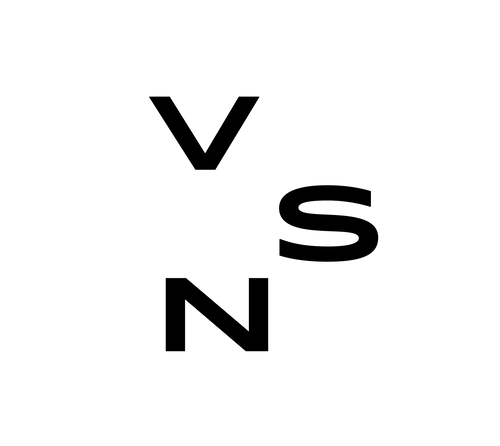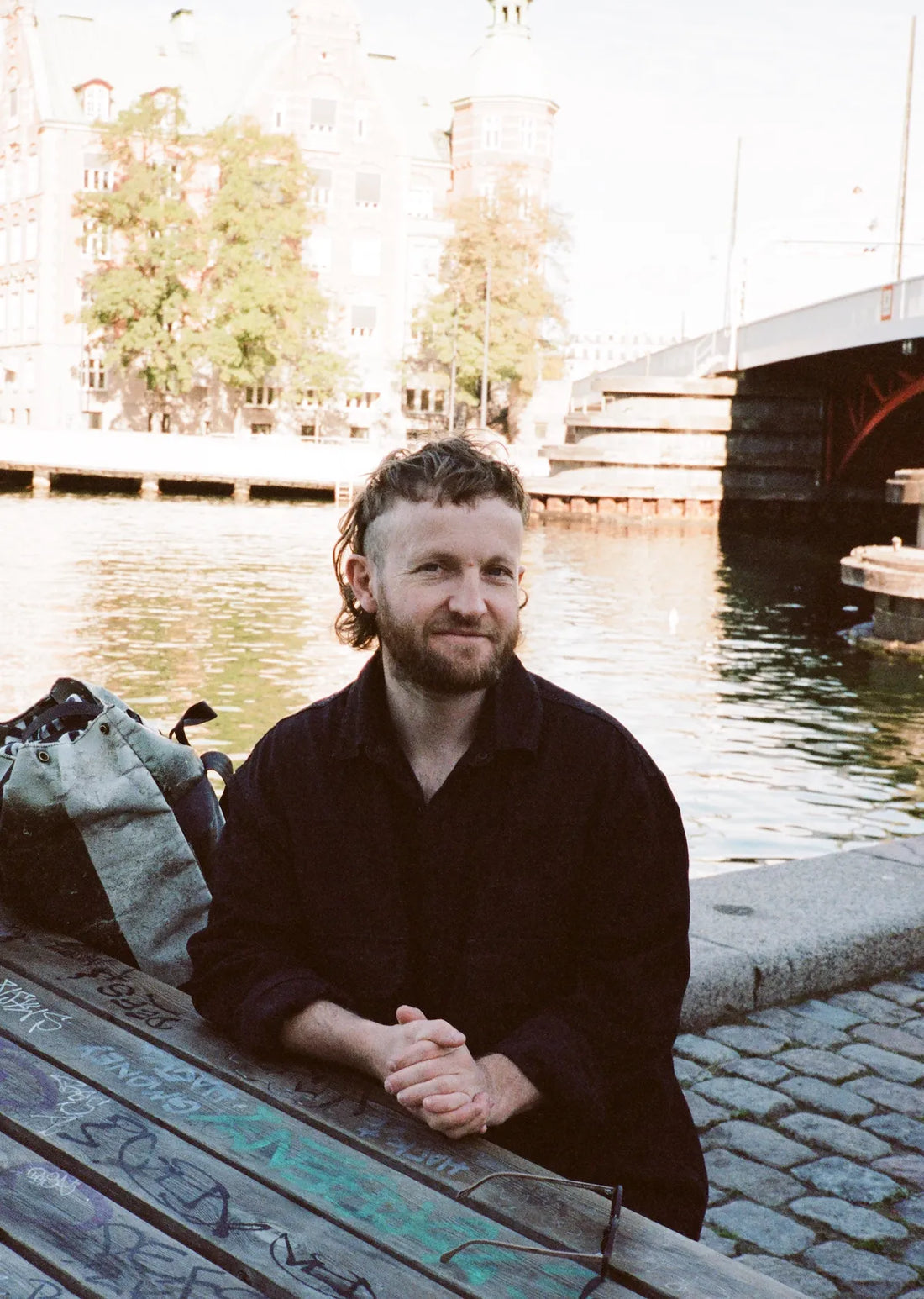Douglas McMaster is a chef and owner of Silo in London – the world’s first zero waste restaurant, which he opened in 2014. Before then, Doug worked under the legendary artist and Zero Waste visionary Joost Bakker, who challenged Doug to ‘not have a bin’. He has now committed his life to not having a bin – and spreading the message of zero waste. We caught up with Doug when he was in Copenhagen to discuss zero waste, creativity, and the future of food.
Caroline Berner Kühl: Let’s start from the top – for someone who doesn’t know you, can you tell me a bit about your background?
Douglas McMaster: Yes, sure. My name is Douglas McMaster, I’m 35, I’m a chef, or I used to be a chef. I’m now a business owner, I own a restaurant called Silo, which is the world’s first zero waste restaurant. It started as a pop-up in Melbourne, with an artist named Joost Bakker. I had to come back to England from Australia, which was a real shame, because what was happening in Australia at that time was very exciting.
But I had to come back for family and then realized what Silo was. This is 10 years ago, and it was very special. I had to continue that journey even if it was in England, so I started Silo on my own here, without Joost’s partnership or help. He was on the other side of the world. So, I opened the world’s first zero waste restaurant in Brighton, a city on the south coast of England. I always wanted Silo to be in East London though, because back when I became a chef, when I was 19, I moved to East London from the north of England. And I love it. East London feels like my home. Which is why Silo is now located in Hackney Wick in East London.
C: You touched upon it already, but maybe you can speak a little bit more to the idea of zero waste?
D: Sure. Zero waste is a broad term. Its title creates a distinction of zero waste, which is almost never accurate. Even in the best zero waste restaurant or the best zero waste system, there’s always waste. And there will continue to be waste for a long time, certainly for our lifetimes. Nonetheless, zero waste is an aspirational idea, you could go as far as calling it a philosophy. It is a very literal system, but basically not throwing things away. In my view, zero waste is about not having a bin. And that was the question Joost Bakker asked me 11 years ago, “Could you not have a bin?” and it was just this really profound artistic question. I was so perplexed and inspired by it that I’ve committed my life to not having a bin. Certainly not there yet, but really close. It is the last few percent of waste that are the hardest to cut out. There’s also worth mentioning, different plateaus that you can aspire for within zero waste. You can say zero waste to landfill, that’s the most important one, but you could say zero food waste, not having a bin, which is the ultimate goal.
C: How do you define waste?
D: It gets a little bit cloudy around the definition of a bin or waste. For instance, food waste that becomes compost, isn’t waste, so… glass that is recycling, is that waste? There’s a lot of issues, and a lot of problems around the semantics, the language of waste. A compost bin is not waste, because it is compost. I would separate the word bin and waste from that because it is not what we understand as waste. I would call it a silo. So, a compost bin, I would call a compost silo, because it is not wasted. That might be going a bit too nerdy with the definitions.
C: But I guess that it is important to truly understand what it is that we are talking about. My next one was about creativity because I think that’s key too?
D: Oh yeah, that’s my favourite. I have always been fascinated with creativity, always been fascinated with the human mind and how it works. Because I think mine works a bit different. I am a neurodivergent, my mind is not typical. Neurodivergents, people with dyslexia, dyscalculia, autism and so on, that spectrum, are people whose brains are wired differently.
And I’ve always found that fascinating. Anyway, creativity is sort of separate to that. Everyone can embody creativity. In its simplest definition it is just connecting dots of information and putting them together in a unique way. It happens to everyone in some degree. But then I guess, the more unique dots connected, you get things like art, you get original ideas and concepts that are brought into the world, driven by creativity.
Silo is a restaurant that doesn’t have a bin, that is a result of creative thinking. I give credit to Joost Bakker, because he was making art out of waste. He saw waste as raw materials, and he wanted to make something out of it. Eventually he made a building, and he saw a paradox in having a building made out of waste, and then creating waste within that building. It was not ideal. I was there at the time, when he had the greenhouse. So, he asked me, as a chef, if I could work without a bin, and that’s how it all started. What I am pointing out in creative terms is that none of those things had ever existed. It was creatively thinking outside of normal cognitive behaviour and putting together pieces of information that makes sense. I do that a lot.

C: And for Silo specifically?
D: When Joost set me on my pathway to doing Silo, I had to be creative. Navigating the limitation of no bin, you have to think creatively. From having produce coming from a farm instead of a wholesaler to weeds coming in and having to mill your own flour or churn butter from butter milk. Exploring creatively to make something which hasn’t ever happened before.
C: The next one is actually about two different concepts, but I think they speak to one another, the first one is public speaking and the other one is educating. Both things; it seems, are prevalent in what you do?
D: Absolutely. My dad was a poet, and I’ve always appreciated articulation, good articulation ideally. And taking big, complicated ideas, and being able to help people understand them with language that they can connect to. I’m dyslexic, so it’s not like I’m a literary gifted human, not necessarily. But I’ve spent a lot of my years, thinking about how to say something to people and hope they are inspired, or understand it, or are informed by it, or educated. I haven’t necessarily gotten into education as in conventional education, but that’s on the horizon. Educating younger generations to think differently from the older generations is critical to forging a better pathway to the future. The existing systems in our world, and I am going to speak specifically about food, because I have a bit of authority there, the existing food systems are completely unsustainable. It is so unsustainable that it is laughable how unsustainable it is.
C: My last question was actually about the future of food…
D: What I like to draw focus to is awareness of fundamental, or let’s say clear correct perspectives. I don’t think we should move forward until we have a clear correct perspective on sustainability. I think we are constantly moving forward and changing things without understanding at the very root what sustainability is or what an ethical food system is. None of us will ever truly understand the mysteries of the universe in this way but nonetheless, we can always do better and have a clearer understanding of sustainability. For me, sustainability is how humans, or any species, co-exist with nature. Sustainability is balance.
You can look at it in a systems perspective and say that in the system of humans on earth, we are pillaging, we are taking and consuming, without restocking or regenerating the things we are taking. Sustainability is where we can find balance with resources and extractions. Essentially, from a governmental or educational perspective, from the roots of things that change society, there needs to be that clear understanding. I think it is really critical for the future of food that we understand what sustainability is.
For me, zero waste is sustainability – a different perspective, a different language for the same thing. If you think about a jungle – without human intervention, it is a very sustainable eco-system, it is thriving. Is there a bin in the jungle? No, because animals don’t have waste, it is a human thing. You could say that sustainability is a much broader terminology and zero waste is specifically looking at the waste of a system. But a sustainable system is a zero waste system. That’s how I like to look at it and that is the future of food.
Call it sustainability, call it zero waste, call it giving a fuck about nature, that is the future of food. It has to be. Otherwise, there is no future of food.

